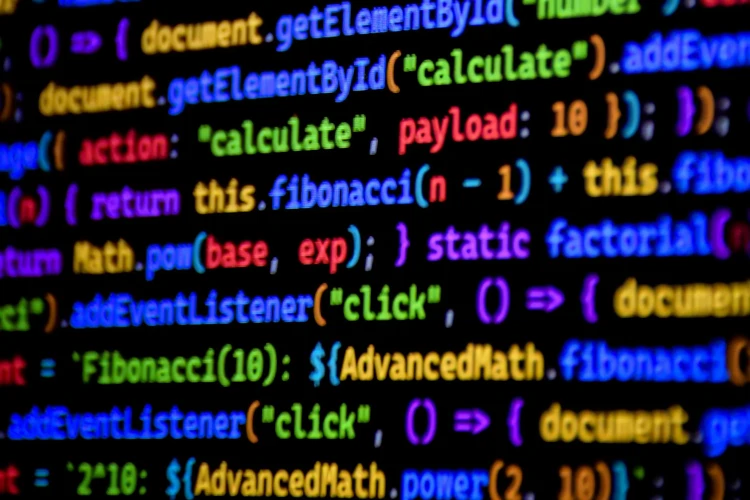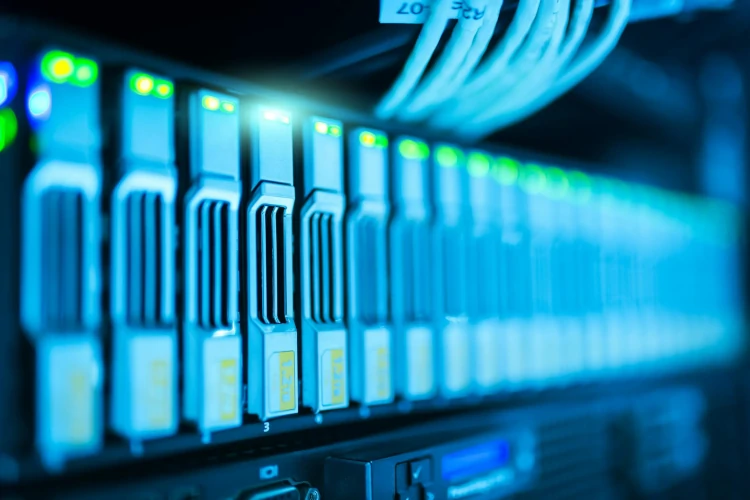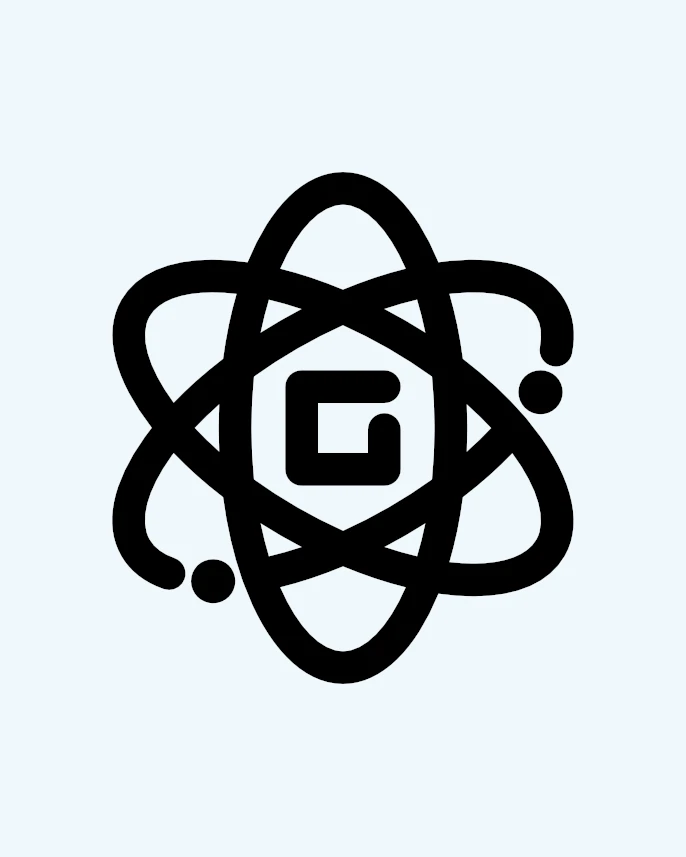The internet has transformed the way we communicate, access information, and conduct business. However, as digital threats grow and the need for faster, more secure communication increases, the limitations of classical internet infrastructure become apparent. This is where the Quantum Internet comes into play—a revolutionary concept that leverages the principles of quantum mechanics to enable ultra-secure and lightning-fast data transmission.
Unlike the traditional internet, which relies on classical bits (0s and 1s) to encode and transfer information, the Quantum Internet uses qubits—quantum bits that exist in multiple states simultaneously. This new approach offers unbreakable encryption, instantaneous communication, and a fundamental shift in how data is shared across networks.
With cybersecurity threats on the rise and the demand for high-speed connectivity greater than ever, the Quantum Internet promises to reshape the digital landscape. But what exactly is it, and how does it work?
1. What is the Quantum Internet?

Definition
The Quantum Internet is a next-generation network that uses quantum principles to facilitate secure and efficient data exchange. Instead of relying on traditional data transmission methods, it employs the unique properties of quantum mechanics to transfer information with unprecedented security and speed.
This system will not replace the classical internet but rather enhance it, particularly in areas requiring high-level security and real-time data synchronization.
Core Principles of Quantum Internet
The Quantum Internet operates based on three fundamental principles of quantum mechanics:
- Quantum Entanglement – When two particles (qubits) become entangled, their states remain interconnected regardless of the distance between them. This allows for instantaneous data correlation, making it a cornerstone of quantum communication.
- Superposition – Unlike classical bits, which can only be 0 or 1, qubits can exist in multiple states at once. This enables quantum systems to process information much faster than classical computers.
- Quantum Teleportation – This process allows for data transfer without physically moving information, using entangled particles to instantly communicate states.
How It Works
Qubits Instead of Classical Bits
In the classical internet, information is transmitted using binary bits (0s and 1s). The Quantum Internet, however, relies on qubits, which can represent both 0 and 1 simultaneously due to superposition. This allows for parallel processing and faster computation.
Quantum Nodes and Repeaters
Since qubits are fragile and prone to interference, a specialized network structure is required. Quantum nodes serve as connection points that help facilitate quantum communication, while quantum repeaters extend the reach of the network by preserving qubit states over long distances.
Quantum Key Distribution (QKD) – Unbreakable Security
One of the most promising applications of the Quantum Internet is Quantum Key Distribution (QKD). This method uses quantum principles to generate encryption keys that are impossible to intercept or replicate. If a third party tries to eavesdrop, the quantum state of the data changes, making any intrusion immediately detectable.
Comparison with the Classical Internet
| Feature | Classical Internet | Quantum Internet |
|---|---|---|
| Data Representation | Binary (0s and 1s) | Qubits (superposition) |
| Security | Encryption-based | Unbreakable QKD |
| Speed | Limited by fiber optics | Near-instantaneous via entanglement |
| Hacking Risk | Susceptible to cyberattacks | Virtually impossible |
The Quantum Internet represents a new frontier in communication technology, offering unparalleled security, efficiency, and speed. As research progresses, we can expect groundbreaking advancements that will redefine how we transmit and safeguard information.
2. What is the Quantum Internet Used For?

The Quantum Internet is not just a futuristic concept—it has the potential to revolutionize the way we communicate, compute, and conduct scientific research. By leveraging the principles of quantum mechanics, it offers solutions to some of the most pressing challenges in cybersecurity, data transmission, and high-performance computing. Below are some key applications of the Quantum Internet and how they will transform various industries.
Ultra-Secure Communication
One of the most significant advantages of the Quantum Internet is its unbreakable security. Traditional encryption methods rely on complex mathematical algorithms, which, while secure today, may become vulnerable as computing power increases—especially with the advent of quantum computers.
Quantum Encryption and Unbreakable Security
Quantum encryption, powered by Quantum Key Distribution (QKD), ensures that data remains completely secure. Unlike classical encryption, which depends on computational complexity, QKD relies on the laws of physics. Any attempt to intercept a quantum-encrypted message alters its quantum state, immediately alerting the sender and receiver to the presence of an intruder.
Prevention of Hacking and Data Breaches
Cyberattacks, data breaches, and surveillance threats are growing concerns in the digital age. The Quantum Internet eliminates many of these risks by making eavesdropping physically impossible. Governments, financial institutions, and corporations handling sensitive data will greatly benefit from this level of security.
High-Speed Data Transmission
Another transformative feature of the Quantum Internet is its ability to enable ultra-fast data transfer. Current communication networks are constrained by latency and bandwidth limitations, but quantum technology aims to overcome these barriers.
Reducing Latency in Communication
By utilizing quantum entanglement, the Quantum Internet can enable near-instantaneous transmission of information across vast distances. Unlike traditional data packets that travel through physical infrastructure, quantum entanglement allows instant state correlation, significantly reducing delays.
Near-Instantaneous Data Transfer Over Long Distances
Currently, transmitting data over long distances requires multiple relays and can be slowed by network congestion. The Quantum Internet will change this by leveraging quantum teleportation, a process in which information can be transferred between entangled particles without physically moving the data. This advancement could revolutionize international communication, global financial transactions, and real-time data processing.
Quantum Computing Integration
The Quantum Internet will also serve as a backbone for quantum computing, allowing quantum computers to connect and work together efficiently.
Connection Between Quantum Computers for Distributed Computing
Just as the classical internet connects computers worldwide, the Quantum Internet will enable distributed quantum computing, allowing multiple quantum machines to collaborate on complex problems. This will significantly enhance computing power and enable breakthroughs in areas such as AI, cryptography, and climate modeling.
Enhanced Cloud Computing with Quantum Resources
Currently, cloud computing relies on classical servers, which have inherent security and processing limitations. The Quantum Internet will enable secure access to quantum cloud computing resources, allowing businesses and researchers to harness the power of quantum computing remotely without compromising security.
Scientific Research & Applications
The Quantum Internet will play a crucial role in advancing scientific discovery and technological innovation.
Quantum-Enhanced Simulations for Drug Discovery, AI, and Materials Science
- Quantum computers connected through the Quantum Internet will be able to simulate molecular interactions with unparalleled accuracy, accelerating drug discovery and the development of new medical treatments.
- AI and machine learning algorithms will be able to process complex datasets faster and more efficiently, leading to improvements in automation and decision-making systems.
- Materials science research will benefit from precise quantum simulations, aiding in the creation of stronger, lighter, and more energy-efficient materials.
Improved Precision in GPS and Time Synchronization
- The Quantum Internet will enhance global positioning systems (GPS) by enabling more accurate time synchronization between satellites and ground stations.
- This improved precision will benefit military navigation, financial transactions, and space exploration, where exact timing is critical.
3. Quantum Internet and Its Impact on Data Transmission and Technology
Quantum Internet and Data Transmission
A Fundamental Shift in Data Exchange
The Quantum Internet represents a paradigm shift in how data is transmitted. Unlike classical internet protocols that rely on binary bits (0s and 1s) and encryption methods susceptible to hacking, quantum communication uses quantum entanglement and superposition to exchange data in a fundamentally different way.
One of the most transformative aspects of this technology is the elimination of security vulnerabilities such as man-in-the-middle (MITM) attacks. In classical networks, an attacker can intercept or manipulate data while it is being transmitted. However, in a quantum network, any attempt to eavesdrop on quantum-encrypted communication immediately disturbs the quantum state of the system, alerting both sender and receiver to the intrusion. This makes hacking practically impossible.
Challenges in Deployment
Despite its promising advantages, the Quantum Internet faces several technical and logistical hurdles:
- Infrastructure Limitations – Current internet infrastructure is designed for classical bits, while quantum networks require a completely new quantum fiber-optic or satellite-based infrastructure to maintain qubit integrity.
- Need for Quantum Repeaters – Quantum signals degrade over long distances due to decoherence. Specialized quantum repeaters are needed to maintain the integrity of quantum states over large-scale networks, but these technologies are still in development.
- Environmental Sensitivity – Qubits are highly sensitive to temperature fluctuations, electromagnetic interference, and even slight vibrations, which can cause data loss. This makes the practical deployment of a stable Quantum Internet a significant challenge.
- Transitioning from Classical to Hybrid Networks – The transition from classical networks to full-scale quantum networks will likely take years. In the meantime, hybrid systems combining both quantum and classical technologies will be necessary to enable a gradual shift.
4. How Quantum Internet Will Change Existing Technologies

Cybersecurity Revolution
One of the most immediate and powerful impacts of the Quantum Internet will be in cybersecurity. Quantum encryption (Quantum Key Distribution, or QKD) will make it impossible for hackers to intercept or decrypt sensitive information. This will be a game-changer for:
- Governments – National security communications will become immune to cyber espionage.
- Finance – Banks and financial institutions will eliminate the risk of fraud, identity theft, and unauthorized transactions.
- Corporations – Businesses will benefit from enhanced data protection, preventing corporate espionage and cyberattacks.
Revolutionizing Telecommunication Networks
The Quantum Internet will also transform global telecommunications by enabling real-time, ultra-secure communication. Today’s networks experience latency due to the time it takes for signals to travel through physical infrastructure. Quantum entanglement allows for instantaneous data correlation, effectively eliminating delays.
This breakthrough will significantly impact:
- 5G and Beyond – The integration of quantum networks will enhance the speed and reliability of next-generation mobile communication.
- Global Connectivity – Quantum networks will allow for seamless, lag-free communication across continents.
- Secure Messaging Platforms – Messaging services will become completely immune to hacking, surveillance, and data leaks.
Impact on Cloud Computing & Big Data
The integration of the Quantum Internet into cloud computing and big data will lead to groundbreaking advancements:
- Quantum Cloud Storage – Data stored in quantum-secure clouds will be impervious to breaches, ensuring that sensitive information remains protected.
- Faster AI Model Training – Machine learning and artificial intelligence algorithms will be able to process vast amounts of data exponentially faster, enabling advancements in everything from medical research to autonomous systems.
- Enhanced Computing Power – Distributed quantum computing networks will allow for unprecedented computational capabilities, solving complex problems that today’s supercomputers struggle with.
Advancements in Space Communication
Space exploration and satellite communication will also benefit from the Quantum Internet:
- Secure Satellite Networks – Quantum-encrypted communication between satellites and Earth will ensure that space-based data remains protected from cyber threats.
- Interplanetary Communication – Quantum technology could enable real-time communication between Earth and Mars, overcoming the current delays caused by vast distances.
- Deep Space Exploration – The Quantum Internet could allow for faster and more reliable data transmission from space probes and extraterrestrial missions.
5. Advantages of the Quantum Internet

The Quantum Internet is set to revolutionize digital communication by leveraging the principles of quantum mechanics to achieve unprecedented security, speed, and efficiency. Unlike the classical internet, which is vulnerable to cyber threats and limited by physical constraints, the Quantum Internet promises a new era of secure, ultra-fast, and intelligent connectivity. Below are its key advantages:
a. Unhackable Security
One of the most groundbreaking benefits of the Quantum Internet is its unparalleled security. Traditional encryption methods rely on mathematical complexity, making them vulnerable to future quantum computers capable of breaking current cryptographic protocols. However, quantum cryptography, specifically Quantum Key Distribution (QKD), ensures total data protection.
- Any attempt to intercept data alters its quantum state, making eavesdropping immediately detectable.
- Government agencies, financial institutions, and corporations will be able to transmit sensitive data without fear of hacking or surveillance.
- Personal communication and online transactions will become immune to cyber threats.
The Quantum Internet will eliminate security breaches as we know them, ensuring absolute confidentiality in digital communication.
b. Lightning-Fast Transmission
The Quantum Internet enables near-instantaneous communication by leveraging quantum entanglement. Unlike traditional networks, where data travels through cables or wireless signals and experiences delays, quantum communication allows for:
- Zero-latency global connections, even over vast distances.
- Faster synchronization of distributed systems, crucial for financial markets and cloud computing.
- Real-time data sharing between quantum computers and advanced AI systems.
This capability will redefine industries that depend on high-speed communication, including stock trading, space exploration, and real-time global decision-making.
c. Improved Computational Power
The Quantum Internet will not only enhance connectivity but also supercharge computational capabilities. By linking quantum computers together, it will enable:
- Faster AI and machine learning algorithms, leading to breakthroughs in automation and problem-solving.
- More accurate simulations for scientific research, accelerating drug discovery, climate modeling, and material science.
- Distributed quantum computing, where multiple quantum processors work together to solve problems beyond the reach of classical supercomputers.
This leap in computational power will transform industries ranging from healthcare to logistics and energy optimization.
d. Enhanced Global Connectivity
Today’s internet infrastructure faces limitations in secure cross-border communication and long-distance data transmission. The Quantum Internet eliminates these issues by enabling:
- Tamper-proof international communication, ensuring global cybersecurity.
- Seamless integration of quantum and classical networks, allowing for a smooth transition into the quantum era.
- Interplanetary communication, paving the way for secure and fast data exchange between Earth, Mars, and beyond.
With its ability to connect devices, institutions, and even planets securely and efficiently, the Quantum Internet will be a key enabler of the next phase of human technological advancement.
e. Future-Proofing Digital Infrastructure
As quantum computers become more powerful, they will eventually be able to break existing encryption standards, posing a significant cybersecurity risk. The Quantum Internet serves as a proactive solution to this looming threat by:
- Providing quantum-resistant security, ensuring that future cyberattacks are rendered obsolete.
- Creating a scalable network infrastructure, adaptable to upcoming technological advancements.
- Laying the foundation for an entirely new era of secure and intelligent global networking.
By investing in quantum networking now, we are future-proofing digital communication and preparing for the challenges of the post-quantum world.
Conclusion
The Quantum Internet is not just an upgrade—it’s a complete revolution in data transmission. It offers unhackable security, instant communication, enhanced computing power, and a future-proof digital infrastructure, making it one of the most promising technological advancements of the 21st century.
While current research is still in its early stages, progress is being made toward practical quantum networks. Countries and tech companies are racing to develop quantum infrastructure, with small-scale quantum networks already being tested in research labs. Experts predict that within the next two decades, a fully functional Quantum Internet will become a reality, transforming the way we communicate, compute, and protect data.
As we move forward, one thing is clear: The Quantum Internet will redefine the digital world, ushering in a new era of secure and instantaneous global connectivity.
